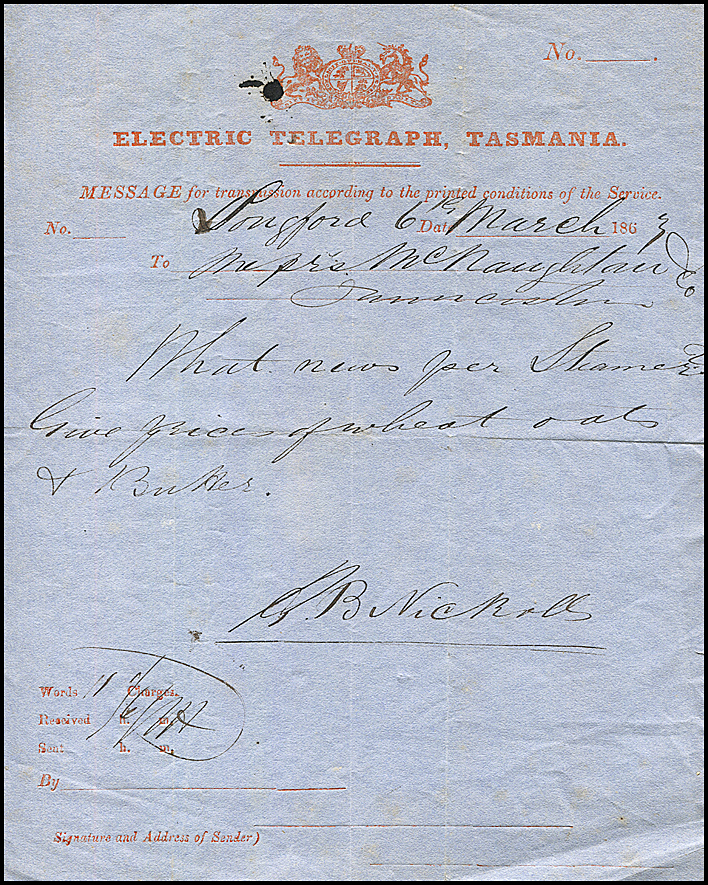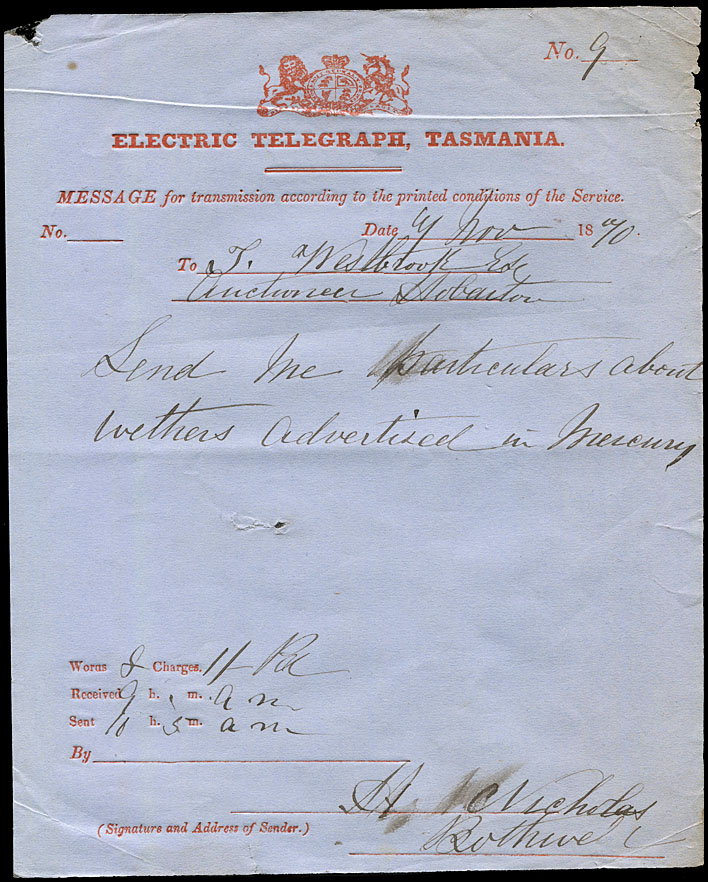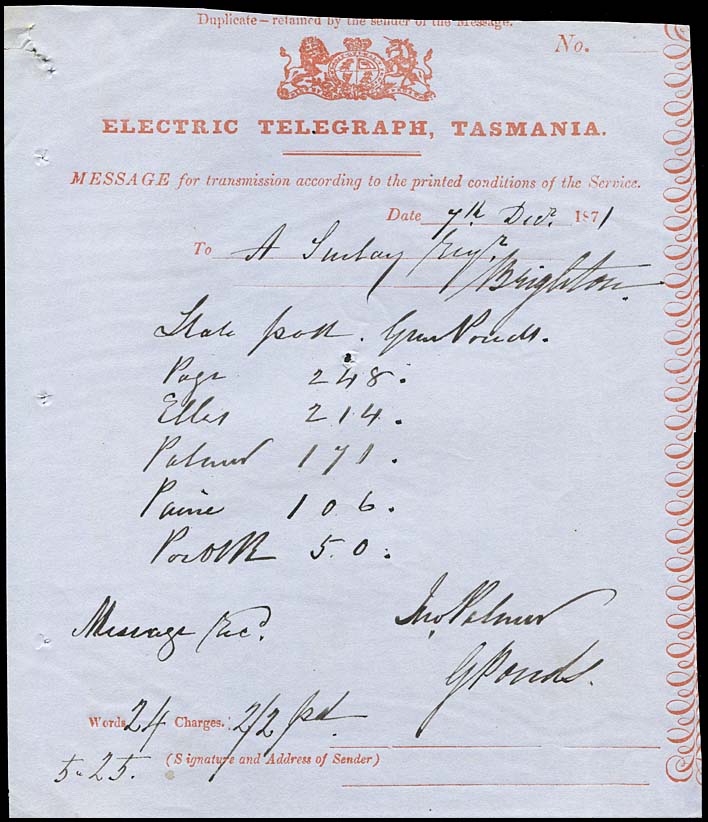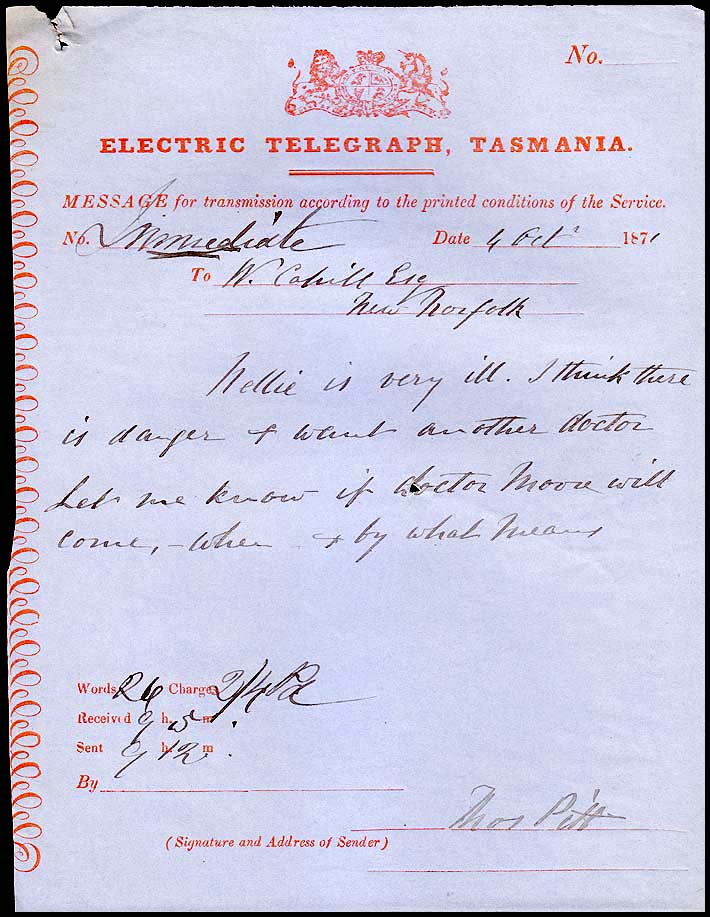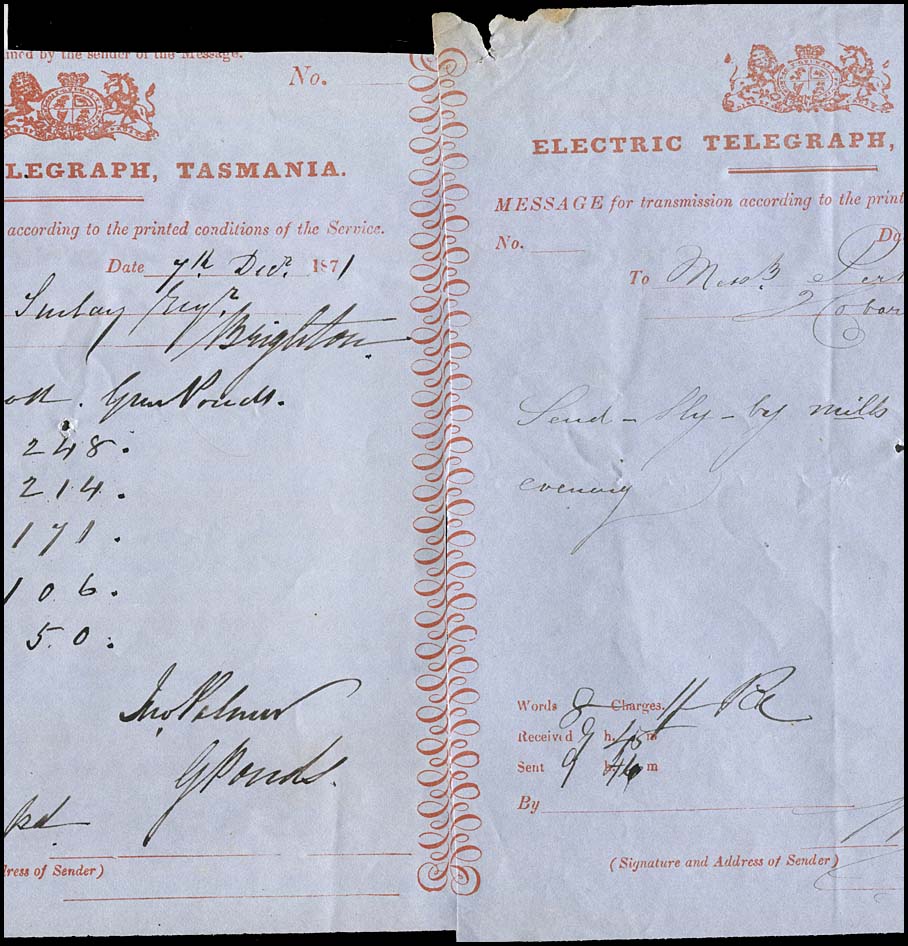Tasmania - Colonial period: 1857-1900.
Transmission form: TC-TO-1.
Transmission form: TC-TO-1.
- Home, index, site details
- Australia 1901-1988
-
New South Wales
- Overview of NSW
- Organisation
- Telegraph lines
- Telegraph Offices
- Date stamps
- Forms
- Envelopes
- Rates
- Stamps
-
Queensland
- Overview of Qld
- Telegraph lines
- Telegraph Offices
- Date stamps
- Forms
- Envelopes
- Rates
- Stamps
- Ephemera
-
South Australia
- Overview of SA
- Organisation
- Telegraph lines
- Telegraph offices
- Date stamps
- Forms
- Envelopes
- Rates
- Stamps
-
Tasmania
- Overview of Tasmania
- Organisation
- Telegraph lines
- Telegraph Offices
- Date stamps
- Forms
- Envelopes
- Railway lines
- Rates
- Stamps
-
Victoria
- Overview of Victoria
- Organisation
- Telegraph lines
- Telegraph Offices
- Date stamps
- Forms
- Envelopes
- Rates
- Stamps
- Ephemera
-
Western Australia
- Overview of WA
- Organisation
- Telegraph lines
- Telegraph offices
- Date stamps
- Forms
- Envelopes
- Rates
- Stamps
- International
- Special aspects
General characteristics:
| Heading and notes: | No form number. Heading is ELECTRIC TELEGRAPH, TASMANIA below a 39 mm wide crest. |
| Message area: | Blank. |
| Reverse side: | Blank. |
| Colours (text & form): | Red on thick blue paper. |
| Size of form overall: | A&B: 214 × 172 (approx) mm. C: 209 × 162 (approx) mm. |
Distinctive characteristics of this form:
- Has "No. ...." in top right corner;
- Telegram details in lower left corner with signature and address of sender below;
- printed in red on blue paper;
- there are three variations based on the printed date:
1A: date printed as 186_;
1B: date printed as 18_ :
1C: date printed as 187_.
These forms are the first type of transmission form issued by the Colonial Government in Tasmania.
The first two formats were probably made available in sheet form with no provision for a copy to be made.
The third format was printed in one sheet with two halves. The message to be transmitted was written on the right side wjile a copy of the message, to be retained by the sender, was written on the left side. The Telegraph Operator would then slice the form into two halves (and a rough job it generally was too!!) and hand the left side back to the sender. An imaginative mock-up composite is included below.
Details of use and rarity.
| Form sub-number |
Schedule number | Earliest recorded date | Rarity rating |
| TO-1A | None. | 6 March 1863 at Longford. | RRR |
| TO-1B | None. | 7 November 1870 at Bothwell. | RR |
| TO-1C (left) | None. | 28 September 1871 at Green Ponds. | RRRR |
| TO-1c (right) | None. | 28 September 1871 at Green Ponds. | RRR |
